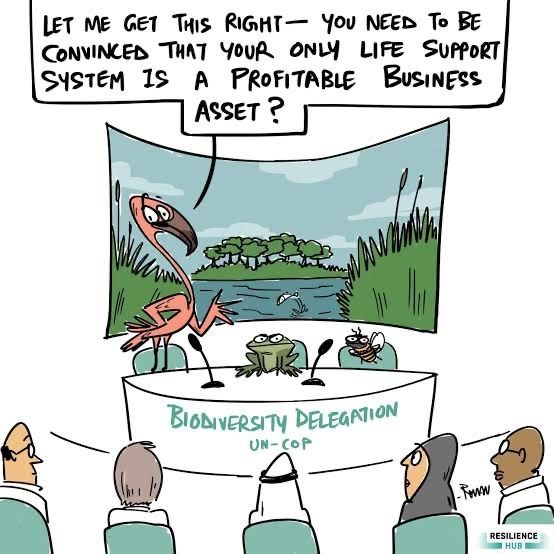The Inner Development Goals emerge from a peculiarly Nordic scandal: Tomas Björkman, who edited Lene Rachel Andersen’s book The Nordic Secret, has spent years traveling the world promoting her work as if it were his own, leveraging her scholarship on Bildung—that rich German tradition of holistic cultural and moral formation—to launch what she now calls an unethical appropriation of the UN’s Sustainable Development Goals.
Here’s where Goodhart’s Law arrives like an unwelcome dinner guest: when you transform the unmeasurable attunement of inner being into 23 discrete, trackable “goals,” you don’t get enlightenment—you get a performance review. Andersen’s withering diagnosis cuts to the bone: “As soon as you start categorizing people—talking about levels, goals, personality types, and colours—it becomes something entirely different.”
What the IDG founders have done is take a centuries-old tradition premised on not predefining developmental outcomes and stuffed it into a framework that demands you gamify your way to “Presence” and “Inner Compass” like they’re achievements in a spiritual video game. The contradiction isn’t just philosophical—it’s obscene.
The real scandal, as Andersen, Nora Bateson, and Dave Snowden have argued, is this attempt at “trying to cram people into a predefined mould”—a technocratic violence dressed up in the soothing language of self-actualization.
You cannot goal your way into authenticity any more than you can schedule spontaneity at 3 PM on Thursdays. The medieval philosophers understood *adequatio* as the soul’s harmonious correspondence with reality—a state of being, not a checklist. But in the IDG universe, where former banker Björkman has built an empire of 700 local hubs across 80 countries, “Integrity and Authenticity” becomes item 1.2 on your personal development KPI dashboard. The framework’s five dimensions—Being, Thinking, Relating, Collaborating, Acting—read like someone fed a McKinsey consultant a stack of Buddhist texts and asked them to deliverable-ize enlightenment. As Andersen puts it with devastating clarity: “When you work with inner development, you cannot predefine the outcome. You can only define the input.”
Is everything real and sacred just to be milked dry? Or might it make more sense to stop banging our heads against the wall with the same grift tactics that got us into this mess. And if we don’t have been checking and balancing of each other, it becomes all too easy for people to become narcissistic, believing that they are actually helping, instead of vampirizing. All the self-importance of COP-30, all the state and corporate backroom deals — doesn’t it ever get boring?
The IDGs violate this fundamental principle with the confidence of people who have never met a human complexity they couldn’t reduce to a competency matrix.
The perhaps most galling aspect is how this entire apparatus—wrapped in non-profit rhetoric but managed through Björkman’s private company and foundation Impactloop — has successfully piggybacked on the UN’s SDGs to create what Andersen calls a deeply unethical illusion of institutional legitimacy. The IDG Summit attracts thousands; IKEA incorporates the framework into leadership training; the Catholic Church expresses interest; consultants get certified. Meanwhile, the scholar whose decades of work on Bildung was appropriated without permission explicitly states she “would have said No” to this commercialization. What we have, then, is not inner development but its simulation—a gorgeous, well-funded, globally-networked simulacrum that promises transformation while systematically forestalling it. It’s the emperor’s new robes repackaged as a toolkit for planetary salvation, and the real tragedy is how many sincere people, desperate for meaning in late capitalism’s twilight, will mistake its 23-point assessment for the thing itself.
Sources:
Andersen, Lene Rachel. “Statement by Lene Rachel Andersen about The Nordic Secret and the Inner Development Goals.” The Nordic Secret. December 20, 2024. https://www.nordicsecret.org/.
“Corporate Greenwashing.” Environmental Defenders Office. November 22, 2022. https://www.edo.org.au/corporate-greenwashing/.
“How Consultants Are Causing Greenwash in Sustainability Reporting.” Corporate Knights. May 14, 2024. https://www.corporateknights.com/category-finance/how-consultants-took-over-sustainability-reporting-esg-greenwash/.
“The Inner Development Goals: The Human Factor Missing from Sustainability.” ESGstart.EU. May 14, 2025. https://esgstart.eu/inner-development-goals-idg/.
Lopes, Tiana. “Capturing the Environmental Elite.” Shado Magazine. July 16, 2024. https://shado-mag.com/opinion/capturing-the-environmental-elite/.
Raouf, M. A., and D. W. Maybury. “Self-Promotion and the Need to Be First in Science.” FACETS 6 (2021): 1667–82. https://www.facetsjournal.com/doi/10.1139/facets-2021-0100.
Rowson, Jonathan. “The Inner Development Goals on Trial.” Perspectiva (Substack). October 9, 2024. https://perspecteeva.substack.com/p/the-inner-development-goals-on-trial.
Snowden, Dave. “Enlightenment by Command.” The Cynefin Co. December 21, 2024. https://thecynefin.co/enlightenment-by-command/.
“The ‘Inner Development Goals’ Movement Faces Criticism.” Impact Loop. Accessed November 7, 2025. https://www.impactloop.com/artikel/inner-development-goals-movement-faces-criticism.
Wikipedia, s.v. “Academic Careerism.” Last modified September 29, 2025. https://en.wikipedia.org/wiki/Academic_careerism.
